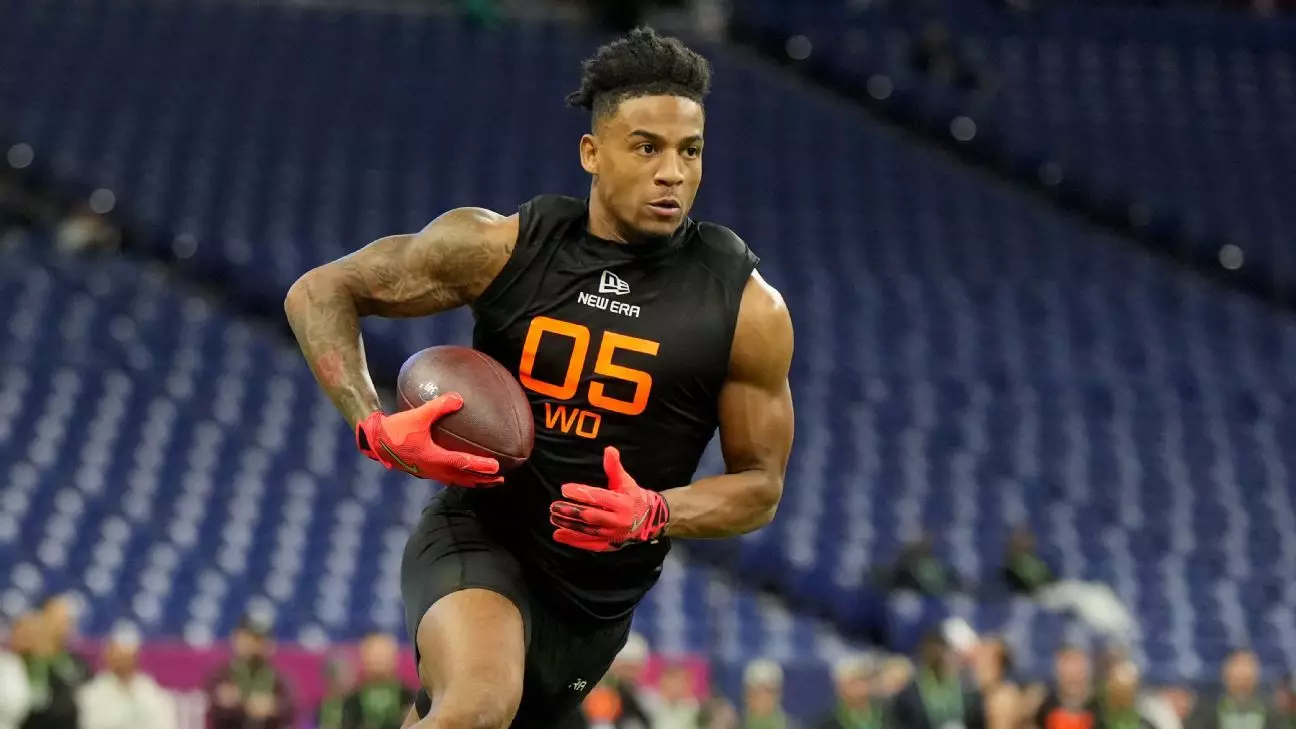In an increasingly volatile landscape defined by swift judgments and character assassinations, NFL draft hopeful Isaiah Bond finds himself at the center of a high-stakes legal battle. Bond’s recent lawsuit, filed in the Northern District of Texas, positions him against an anonymous woman whose claims, his lawyers argue, are fabricated. With the intensity of scrutiny that surrounds athletes, particularly during the draft season, Bond’s legal confrontation is not merely a personal crisis; it raises broader questions about the mechanisms of accountability and justice within the NFL community.
Context of the Allegations
Bond, who recently turned himself in to the Frisco Police Department due to an outstanding sexual assault warrant, has contested these allegations vehemently, asserting that any interaction with the unnamed accuser was entirely consensual. His release on a $25,000 bond is a significant moment, but what looms larger is the potential impact these allegations could have on his burgeoning career. Initially, the legal proceedings may appear to be a straightforward challenge for Bond; however, the reality is more complex, as such allegations can carry ramifications that transcend legal boundaries and penetrate the realm of public perception.
Claims of Defamation and Economic Repercussions
The lawsuit’s inclusion of a defamation claim underscores the profound consequences that unverified allegations can impose on a public figure. Bond’s team is not merely seeking economic damages—they are challenging the very authenticity of the charges to restore his reputation. This legal action goes beyond Bond as an individual; it serves as a critical commentary regarding how swiftly accusations can spiral into widespread condemnation. The NFL, a league that has historically grappled with public relations crises, now finds itself at another crossroads, needing to consider how such cases can affect not only individual players but also its overall ethos.
The NFL’s Response and Broader Implications
Damien Butler, Bond’s agent, took the unusual step of disseminating the first page of the lawsuit to all 32 NFL teams, asserting that Bond “is completely innocent of the allegations.” This move is indicative of the precarious position in which athletes find themselves—where their futures hinge upon unproven claims. Furthermore, Bond’s public statement post-release reflects a deep-seated frustration common among many who have faced similar accusations: “I kindly request that all reserve judgment until the authorities provide a complete report based on truth and evidence.”
The implications of his case extend far beyond Bond’s immediate situation; they touch upon the systemic challenges faced by athletes who find their names tarnished by allegations, whether substantiated or not. As public opinion sways with the tides of information—often skewed and incomplete—Bond’s fight to exonerate himself serves as a crucial reminder of the importance of due process.
Bond’s Athletic Journey and Future Prospects
Bond’s performance on the field has shown promise throughout his college career, from his time at Alabama to his recent successes at Texas. In his latest season, he amassed credible statistics marked by 34 receptions for 540 yards and five touchdowns. Yet, amid his athletic achievements, the pressing legal concerns now overshadow his future as he aims for the NFL. The disparity between his talent and the circumstances surrounding him showcases the harsh realities athletes must navigate.
As Bond embarks on a rigorous battle to clear his name, the intersection of athletics, law, and public perception becomes ever more critical. His situation exemplifies a larger narrative about the fragility of reputation in the high-pressure world of professional sports. The outcome of this legal struggle doesn’t just hinge on Bond’s ability to navigate the courtroom; it could redefine how athletes manage their images in a culture quick to judge and a media landscape eager for sensational narratives.


Leave a Reply